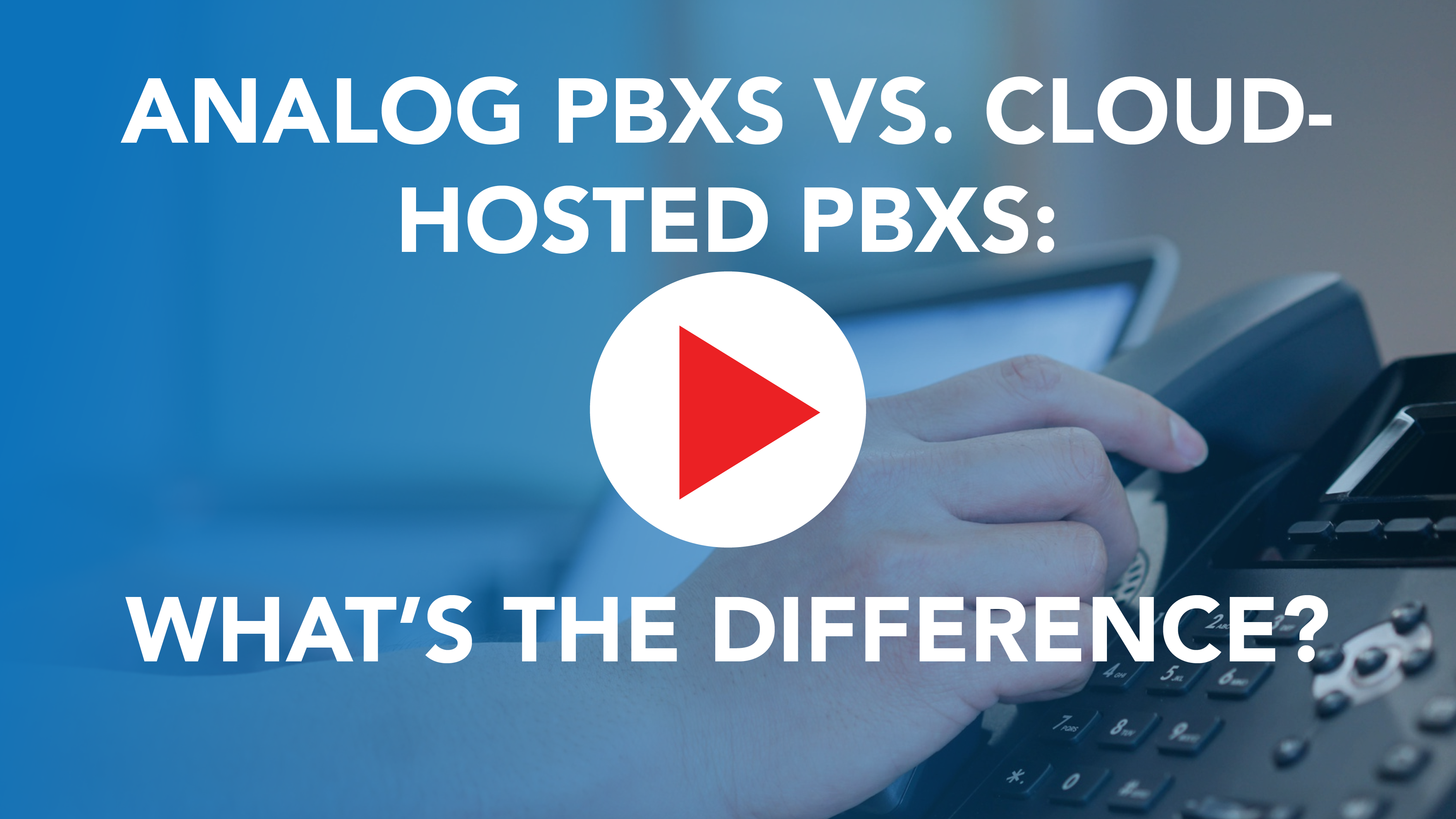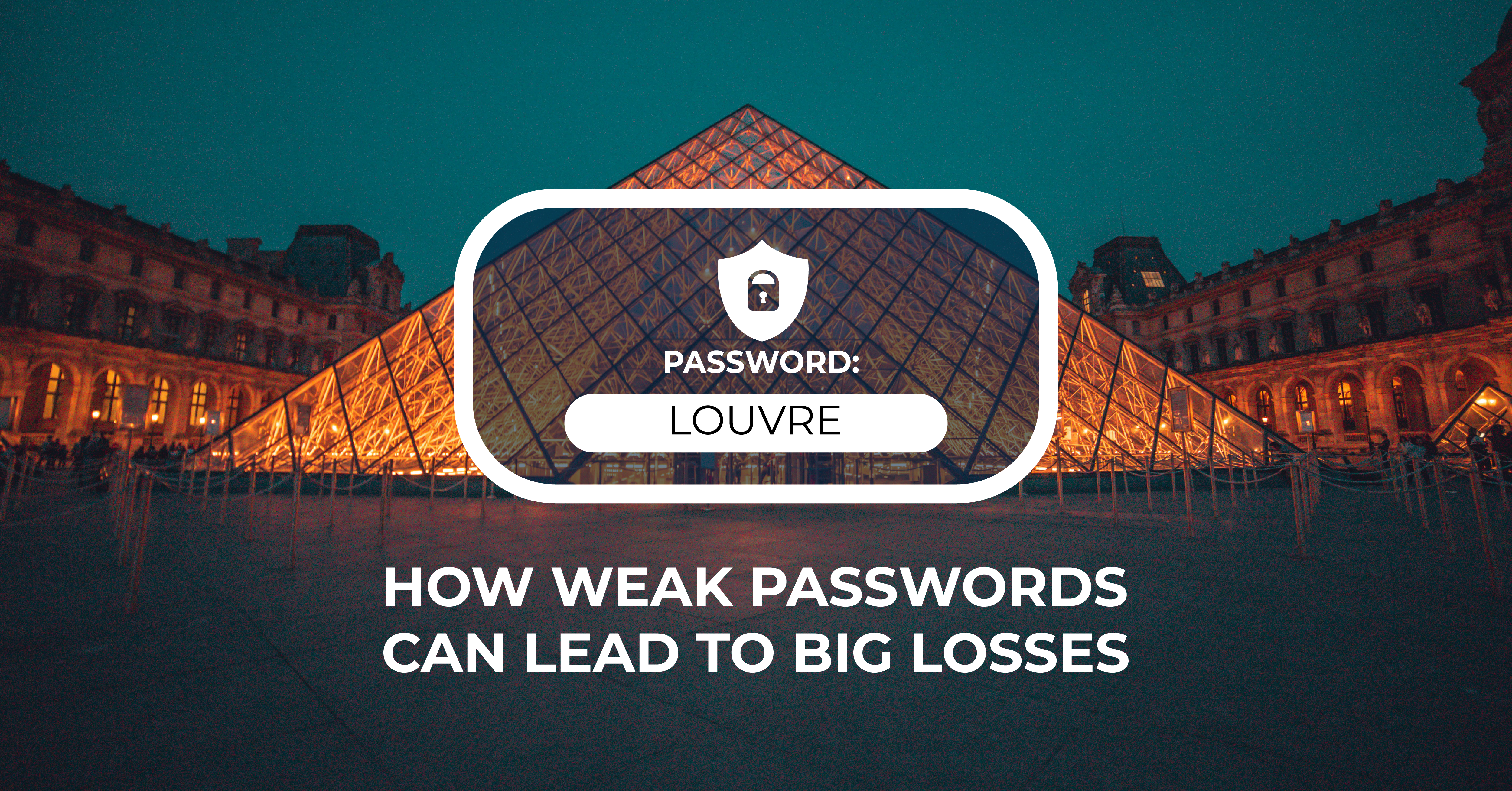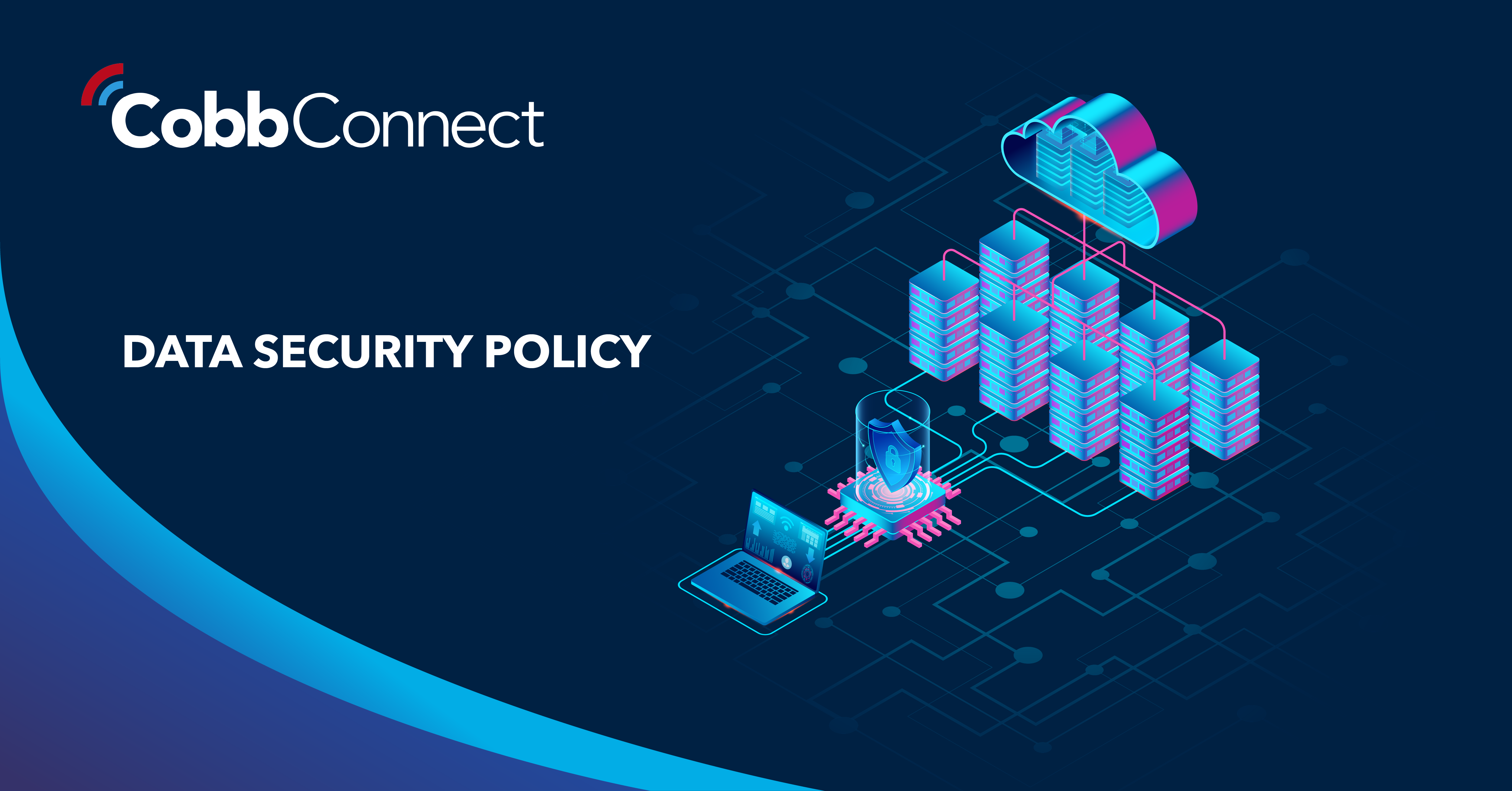11 min read
Best IT Strategies for Law Firms Going Into 2026
Why should a law firm invest in a strong modern IT strategy? Today’s legal teams depend on secure, reliable technology to protect sensitive...
2 min read
Cobb Tech
Jul 16, 2020 2:00:00 PM

A PBX - Private Branch Exchange - is a private telephone network used internally to communicate within an organization, and externally to communicate with others outside of a company. PBXs come with a variety of helpful features, including allowing users to have more phones than phone lines, establish a phone menu, transfer calls, and record voicemails among other things.
A PBX is an essential component of business communications, and in this video, we will discuss the two foundational types of PBXs: analog PBX and cloud-hosted PBX
An analog PBX is the traditional form of PXB that would typically sit on-site at offices. Analog PBXs were first introduced in the 1960s and initially required an operator to sit at a switchboard and physically connect calls. Naturally, the analog PBX has since evolved, and now automatically connects calls instead of requiring an operator on a switchboard.
Analog PBX systems were first adopted by large corporations as they were initially very expensive and, although prices have gone down in the decades since analog PBXs inception, they continue to be the more costly PBX choice, partially due to equipment and physical maintenance costs.
Analog PBXs also come with the features I mentioned earlier - phone menus, forwarding, voicemails - and more. So while they are the traditional PBX, they’re still developing with the times.
Additionally, because analog PBXs use phone lines, they're pretty reliable and will continue to work during power outages and if the internet is now working, they’re also a good choice for businesses in more remote areas that are unable to connect to the internet.
A cloud-hosted PBX, also known as an IP PBX, is an Internet Protocol Private Branch Exchange. Cloud-hosted PBXs got their start in the 1990s when the internet was booming and it was discovered that you could route calls through the internet using a Voice Over Internet Protocol, or VoIP.
VoIP converts analog phone calls into IP packets that are sent through the internet and then decoded back into an analog phone call for the recipient on the other end of the phone.
Cloud-hosted PBXs were less expensive to implement than analog PBXs, causing them to be more widely adopted. Unlike traditional analog PBX systems, VoIP systems are more easily customizable and do not require the same amount of equipment upkeep as analog PBX systems.
It’s been decades since cloud-hosted PBX technology was introduced, and it’s had quite the evolution. Nowadays, VoIP systems can communicate between internet-enabled phones, mobile devices, and computers from anywhere, delivering more holistic, unified communications within an organization in the form of voice, video, text, and file-sharing communications.
If you want to learn more about business communication technology please reach out and contact us.

So, what happens to your VoIP phone system if the internet in your office is down? Watch here to learn more!

“What is the best VoIP platform?” That’s a good question — and honestly, there is no concrete answer. There are some VoIP services that offer more functionally than others, that cost less than others, and those which can be deployed easier than others.

VoIP services don’t come with their own unique problems. Here are some you may experience when using a VoIP service from home.

11 min read
Why should a law firm invest in a strong modern IT strategy? Today’s legal teams depend on secure, reliable technology to protect sensitive...

2 min read
The Louvre’s password became the punchline of a global story after a heist revealed major security concerns for the museum. Reports say the password...

6 min read
Organizations of all sizes handle enormous volumes of data. Data is one of the most valuable assets of any organization.Unfortunately, it’s also a...